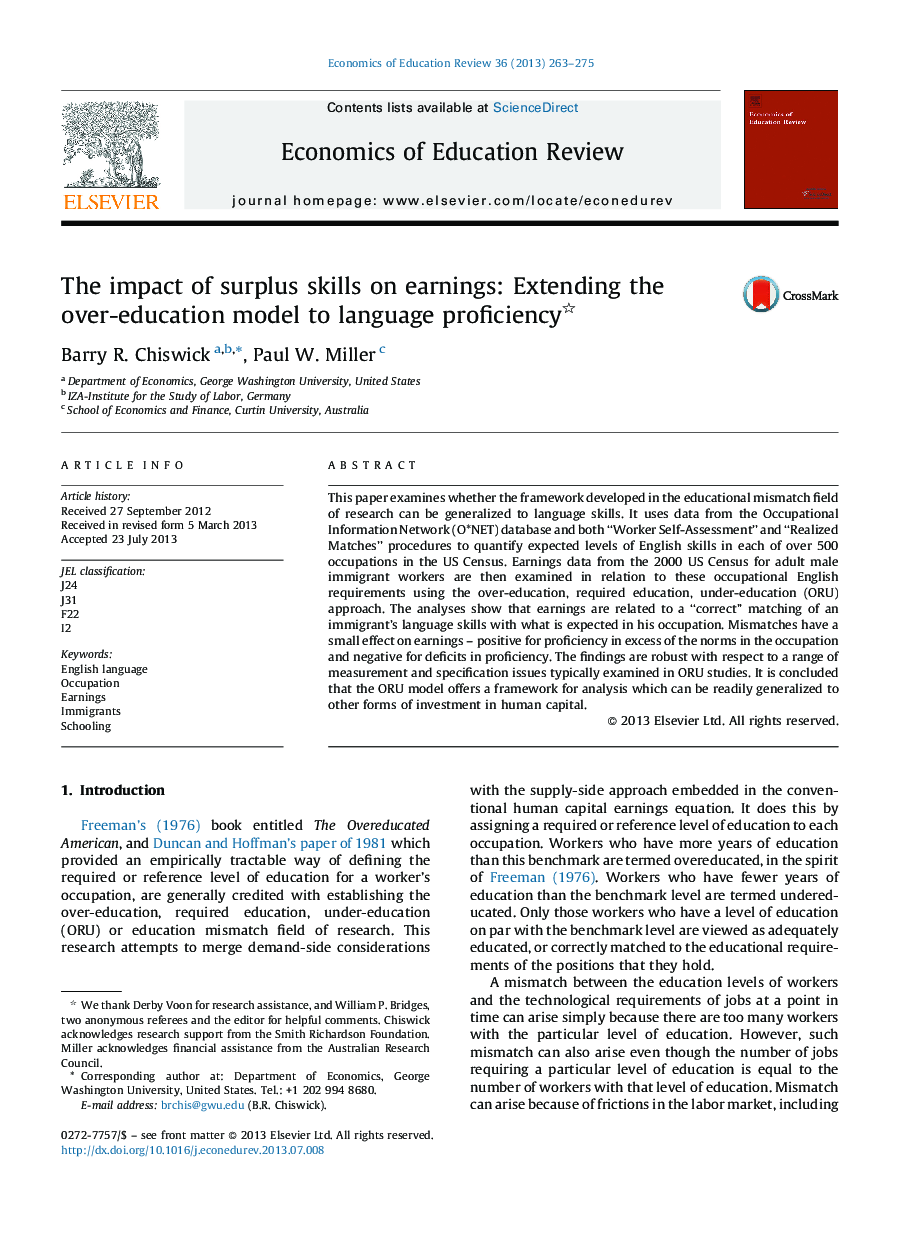| Article ID | Journal | Published Year | Pages | File Type |
|---|---|---|---|---|
| 6840937 | Economics of Education Review | 2013 | 13 Pages |
Abstract
This paper examines whether the framework developed in the educational mismatch field of research can be generalized to language skills. It uses data from the Occupational Information Network (O*NET) database and both “Worker Self-Assessment” and “Realized Matches” procedures to quantify expected levels of English skills in each of over 500 occupations in the US Census. Earnings data from the 2000 US Census for adult male immigrant workers are then examined in relation to these occupational English requirements using the over-education, required education, under-education (ORU) approach. The analyses show that earnings are related to a “correct” matching of an immigrant's language skills with what is expected in his occupation. Mismatches have a small effect on earnings - positive for proficiency in excess of the norms in the occupation and negative for deficits in proficiency. The findings are robust with respect to a range of measurement and specification issues typically examined in ORU studies. It is concluded that the ORU model offers a framework for analysis which can be readily generalized to other forms of investment in human capital.
Related Topics
Social Sciences and Humanities
Economics, Econometrics and Finance
Economics and Econometrics
Authors
Barry R. Chiswick, Paul W. Miller,
